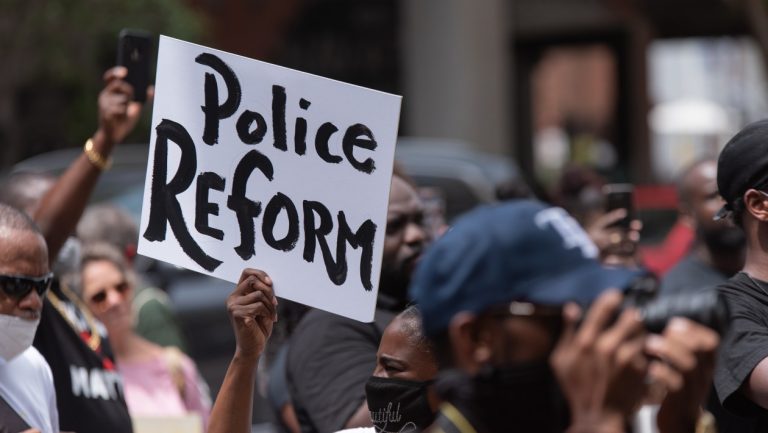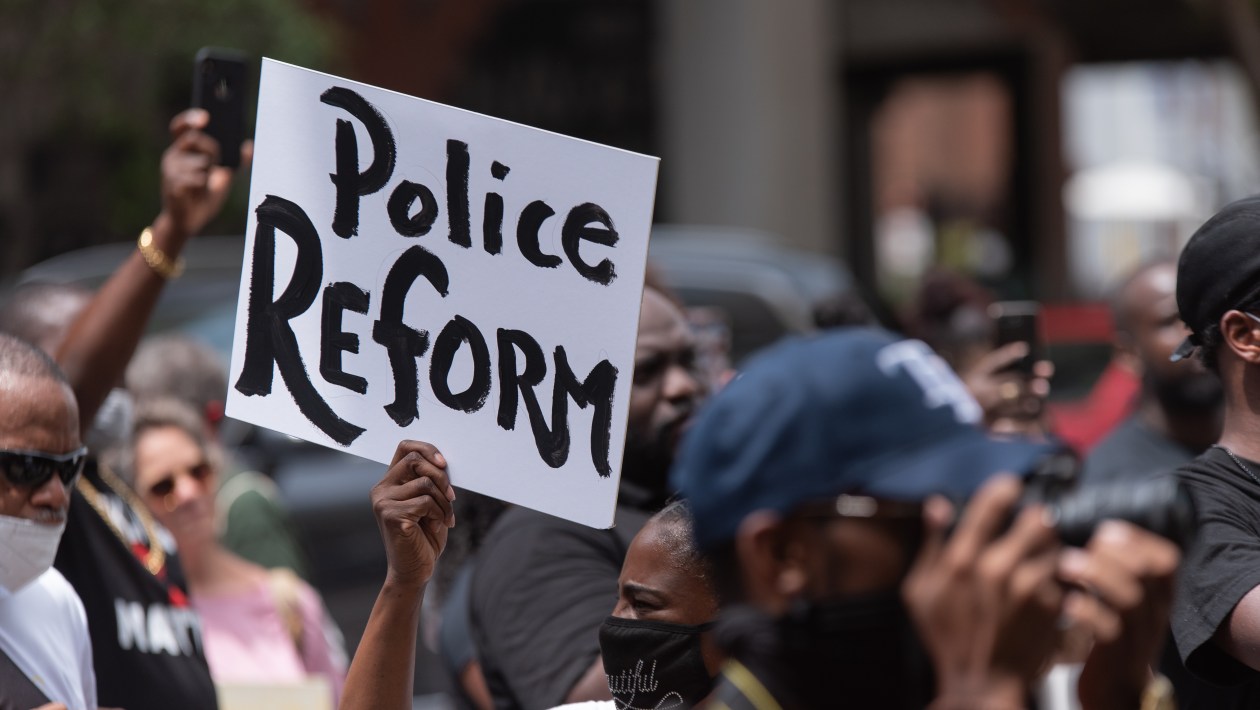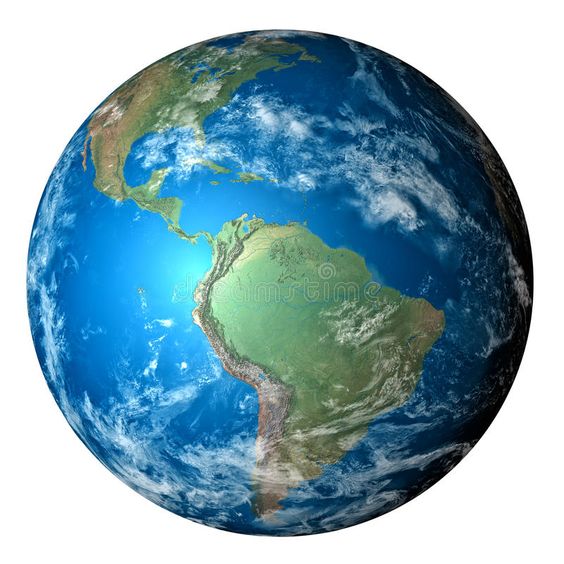

The George Floyd Bill proposes slew of changes which has raised concern among the law and order lobby, police union, gun enthusiasts and states’ rights advocates.
Among the bill’s provisions are a ban on chokeholds and carotid holds of the type that killed George Floyd.
By Tom Arms
The guilty verdict in the trial of Minneapolis policeman Derek Chauvin for the murder of African-American George Floyd has the potential to be a watershed in American race relations. But it has a host of hurdles to overcome.
The key to surmounting well-entrenched centuries old problems is the George Floyd Policing Act, also known more succinctly as the George Floyd Bill. It passed the House of Representatives in March and is now before the Senate where it needs 60 votes (nine more than there are Democrats) to circumvent the dreaded filibuster.
The Bill proposes slew of changes which has raised concern among the law and order lobby, police union, gun enthusiasts and states’ rights advocates. It would be more than just concern if it weren’t for the fact that Chauvin is obviously guilty beyond any reasonable shadow of a doubt.
Among the bill’s provisions are a ban on chokeholds and carotid holds of the type that killed George Floyd. It also creates a national “misconduct registry” to prevent police officers fired from one force finding employment on another police force elsewhere in the country.
There is money for improved training and an end to racial profiling and state. Local authorities who refuse to accept Washington’s oversight will find federal funds dramatically cu. They could even be completely cut off.
Perhaps more important of all, the George Floyd Bill, proposes the end of the Qualified Immunity Act which gives government employees—mainly police—protection from prosecution for assaults on people’s rights. In this case it means protection for African-Americans as guaranteed under the 8th Amendment of the US constitution which protects citizens from cruel and unusual punishment.
The powerful police union claims that qualified immunity is essential if law and order is to be maintained on American streets and the lives of the men and women charged with maintaining law and order are to be protected. They are joined by the gun enthusiasts and states’ rights advocates. The former oppose any restrictions on weapons, especially those carried by the police. The latter will fight on principle tooth and nail against any federal oversight laws. They argue that police actions should be tailored to local conditions which vary around the country, rather than imposed on a one size fits all basis by Washington liberals.
The emphasis on law and order over justice has created them and us conflict mentality between America’s police and the public they are meant to “serve and protect.” When a SWAT team is activated it goes from the station kitted out for action in a war zone. They are equipped with armored vehicles, airplanes, drones, helicopters, grenade launchers, tear gas, and assault rifles.
Their head to toe protective gear makes them look more like frontline soldiers than police officers, and too often they act accordingly. This is not surprising. Since 1997 the US Department of Defense has transferred more than $7 billion in military equipment to police authorities.
The prosecutors in the Derek Chauvin/George Floyd trial said that only one rogue policeman was on trial for murder in Hennepin County Court—not the nation’s police. It is true to a degree. Not all police officers are vicious racist thugs. Just as not all Muslims are terrorists and all Hispanics are murderers and rapists. But American law enforcement agencies appear to attract too many of them, and they—and their honest, law-abiding colleagues—were metaphorically standing next to Derek Chauvin when the guilty verdict was delivered.
 World Review
World Review
- Liverpool’s famous football manager Bill Shankly once said: “Some people believe football is a matter of life and death… I can assure you, it is much, much more important than that.” The quote is for many a truism which sums up why world headlines have been dominated by the attempt to form a European football Super League. 100,000 Russian troops massed on the Ukrainian border; global pandemic deaths soared past the three million mark; America may have reached a turning point in race relations and the starting gun has effectively been fired in German federal elections. Football has become the world’s number one sporting institution. It has become an international cultural treasure, spreading in less than a 100 years from a league game played between handfuls of British public schools to every corner of the globe. To escape civilization I once paddled 12 miles up the Gambian River and trekked through three miles of jungle to stumble across a mud hut where a lone bookie armed with a mobile phone was taking bets on that day’s English Premier League matches. The row also underscores another issue: stewardship. To whom do the clubs belong? The fans? The players? The directors? Bill Shankly had something to say about that as well: “At a football club, there’s a holy trinity–the players, the manager and the supporters. Directors…are only there to sign the cheques.” They are at best stewards of national and international cultural phenomenon. They are only allowed the financial rewards and a degree of self-satisfaction awe and respect. Those rewards are for ensuring the success of a sporting institution for the widest possible audience.
- Sixteen years of Merkel rule is drawing to a close in Germany. “Mutti” (mother in German as she is called by her legion of fans, will not be standing for re-election as Chancellor. Almost entire generation of Germans has known no other leader. The East German pastor’s daughter has played a vital role in continuing the reunification of Germany and inching Europe towards a federal state with a good dose of common sense and quiet diplomacy. That is on the good side of the political ledger. On the bad side is her partial responsibility for the Brexit debacle; an immigration policy which fueled racism in Germany and beyond and her government’s management of the pandemic. But perhaps Angela Merkel’s greatest deficiency has been her failure to groom a successor for leadership of the center-right Christian Democratic Union. One finally emerged this week: 60-year-old Armin Lascher. He is a solid if somewhat pedestrian figure. Lascher is by profession a mining engineer whose strong links to North Rhine Westphalia’s coal mining industry undermine his green credentials. But he is resolutely pro-EU, has strong links with the Turkish community and backed Angela Merkel’s 2015 decision to admit a million refugees. If the latest opinion polls are an accurate pointer, The CDU and their Bavarian partners the CSU (Christian Social Union) are expected to win the most seats in the September elections. Currently they stand at 28 percent. The Greens are five points ahead and are likely to be in a coalition government. The SPD (Social Democratic Party) has slipped to 15 percent. The FDP (centrist Liberal Democrats) are more or less tied with the anti-immigrant and anti-EU AfD (Alternative fur Deutschland). The latter have damaged their prospects with internal divisions and an anti-lockdown position. Whoever succeeds “Mutti” will need to move quickly and decisively to fill her shoes and stamp their authority on German, European and international politics.
- The United States is back in the international driver’s seat and has chosen climate change as its lead vehicle. Donald Trump adopted a xenophobic unilateralist foreign policy and used departure from the Paris Climate Change Accord as a signature stratagem. Joe Biden rejoined the Paris Agreement on his first day in office and this week hosted a virtual summit of 40 world leaders to discuss climate change strategy as part of the diplomatic spadework required for the 200-nation COP25 climate summit in Glasgow in November. So far, Biden has announced plans to halve carbon emissions by 2030, and the EU has proclaimed a 55 percent target. Brazil’s Bolsonaro has surprised the world community by pledging to end illegal deforestation. Japan, South Korea and Canada have all tabled new proposals. China and India have surprised everyone by turning up and appearing willing. The three biggest problems appear to be China, India and Australia. The first two are big CO2 emitters, and the Australian economy is heavily dependent on coal exports to China. Regardless of the outcome of this week’s meeting or the November summit, President Biden faces an uphill environmental struggle at home. The problem of climate change is an immediate problem which requires a long-term solution. American politics are by nature short-term. Trump has made climate change denial a key plank of Republican Party policy. In November 2022 they could regain control of Congress and there is no guarantee that Biden or a fellow Democrat will be in power after 2024.
- The 100,000 Russian troops dispatched to the border with Ukraine are returning to base. Defence Minister Sergei Shoigu said the aims of the “snap checks” had been achieved. But what were those aims? To prod and poke at NATO defences. To demonstrate Moscow’s resolve to control Ukraine and demand to be treated as a great power and to force cracks in the Western Alliance. During the Cold War the same tactic was used in Berlin, Korea and most dangerously Cuba. Former KGB officer Vladimir Putin is merely continuing the high stakes chess game of his Soviet predecessors. That was clear in his annual state of the nation address this week. He claimed that the West was in peril of crossing “red lines” which would trigger a “rapid and harsh response from Moscow.” Putin’s red line referred to more than Ukraine. It includes criticism of Russia’s human rights policy, especially sanctions over the fate of opposition leader Alexei Navalny. Also attacks on roaming assassination squads of GRU officers; breaches of nuclear arms agreements and flak about Russian cyber-attacks and interference in elections. Almost all of which Putin denies. Everyone knows he lies. Or at the very least deals in “alternative facts.” What Putin forgets is that there are two sides to a line and it can be crossed from either direction.
- Once every twelve years devout Hindus gather on the banks of the River Ganges at the northern city of Haridwar. They meet for the Kumbh Mela Festival when they immerse themselves in the waters of the sacred river. The devotees believe that this action will release them from the cycle of life and death and lead their souls to Nirvana. 2021 is the twelfth year. The two-month festival is in full swing and will not end until next Saturday. So far an estimated two million believers—none of them socially distancing and few of them wearing face masks—have crowded onto the river banks and spilled into the waters of the River Ganges. They believe that the river will protect them from coronavirus as well as provide with a place in Nirvana. As a result, India has now broken world records for the number of new cases and deaths from Covid-19. Some 314,835 new cases were reported on Wednesday, and 2,104 deaths. Six hospitals in Delhi have run out of essential oxygen supplies needed to keep patients alive. More than 99 percent of the intensive care beds are full. Crematoria have been reduced to building funeral pyres in their car parks. The vaccination program which started with great promise in January has stalled. So far only 13 percent of the population has been vaccinated. Government handling of the crisis has been deemed a disaster. There is no national lockdown and political rallies—including one organized by Prime Minister Narendra Modi– have only recently been banned. India has surpassed the United States as the world’s worst-hit country and it appears to be a long way from bottoming out while America is heading towards recovery. But most frightening of all for the rest of the world, is that India’s Covid crisis has led to development of a new and dangerous mutation. With one billion Indians, it will be impossible to contain the variant on the sub-continent.
__________________
About the Author
 Tom Arms is foreign affairs editor of Liberal Democrat Voice and is based in London. He has nearly half a century’s experience of world affairs, and has written and broadcast for American, British and Commonwealth outlets. Positions he held included foreign correspondent, diplomatic correspondent, foreign editor, editor and founding CEO of an international diary news service. He is the author of “The Encyclopedia of the Cold War,” “The Falklands Crisis” and “World Elections on File.” His new book “America: Made in Britain” is due to be published in October.
Tom Arms is foreign affairs editor of Liberal Democrat Voice and is based in London. He has nearly half a century’s experience of world affairs, and has written and broadcast for American, British and Commonwealth outlets. Positions he held included foreign correspondent, diplomatic correspondent, foreign editor, editor and founding CEO of an international diary news service. He is the author of “The Encyclopedia of the Cold War,” “The Falklands Crisis” and “World Elections on File.” His new book “America: Made in Britain” is due to be published in October.